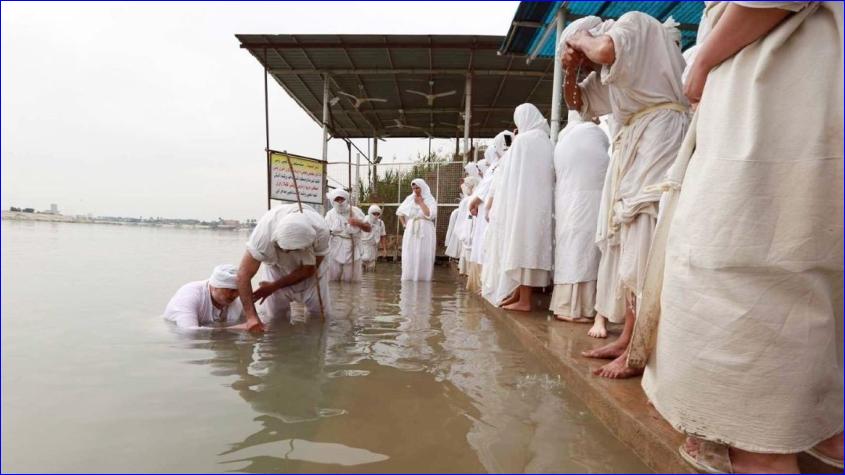


Among the most vulnerable are the Mandaeans, also called Sabean-Mandaeans. Once a thriving religious community, their numbers in Iraq have dropped to alarmingly low levels. Ghanem Hashim, head of the Mandaean Council of Elders, told Rudaw that the community's population has now fallen below 50,000. He noted that not a single Mandaean serves in the army or police, with only 20 individuals assigned as "personal guards and temple protection."
The community's main temple, located in Baghdad's Al-Qadisiyah district and built in the 1980s on the banks of the Tigris River, later became a refuge for displaced Mandaeans from provinces such as Basra, Maysan, Dhi Qar, Diwaniyah, central Anbar, Diyala, Kerkeslokh (Kirkuk), Arba'ilo (Erbil), and Nineveh -- regions historically home to significant Mandaean, Yezidi, and Chaldean--Syriac--Assyrian populations.
Hashim further explained that between 250,000 and 300,000 Mandaeans have emigrated from Iraq "since 2005, when targeted killings and forced displacement began -- and that migration continues today." He added that an estimated 500--600 Mandaean families currently reside in the Kurdistan Region of Iraq (KRI).
While historical accounts differ on the precise origins of the Mandaean faith, scholars agree that its followers speak Eastern Aramaic and that baptism lies at the heart of their religious practice. For this reason, they are sometimes referred to as the "Christians of Saint John the Baptist."

or register to post a comment.